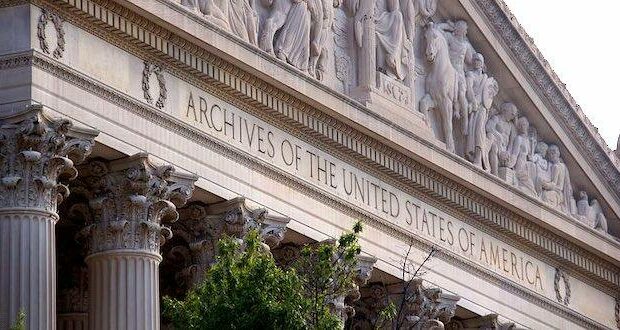A legal analysis of the Presidential Records Act will pose a problem for prosecutors seeking a 110-year prison sentence for Donald Trump.
According to legal expert Mike Davis, the former president has the legal authority to keep records despite federal prosecutors arguing the move constituted willful retention of national defense information.
Davis explains the 37-count federal indictment against Trump is legally flawed when held against past court precedents surrounding presidential records, including former President Bill Clinton keeping sensitive audio recordings in his sock drawer.
“Former presidents are allowed to have their presidential records when they leave office, whether they are classified or not, and that is in the Presidential Records Act. And that’s why Congress gives former presidents secure office space, federally funded staff, and Secret Service protection in the heavily guarded office of the former president,” Davis said in a Wednesday interview with NTD’s “Capitol Report.”
Has the prosecution ignored the actual law?
Davis, who served as a legal counsel to Sen. Chuck Grassley (R-Iowa), as clerk for a federal judge, and who now heads the Article III Project, says President Joe Biden’s Justice Department, Attorney General Merrick Garland, and special counsel Jack Smith have ignored the wording and case law surrounding what should have been an issue involving the Presidential Records Act (PRA) in order to instead charge him with violating the Espionage Act–a WWI law intended to punish passing on information to America’s declared enemies during the conflict.
The 37-count indictment (pdf) against Trump includes 31 counts of willful retention of classified information, in violation of the Espionage Act.
“They can’t charge espionage for something a former president is allowed to have under the Presidential Records Act,” Davis asserted.
While the media has speculated about the mishandling of the documents, Davis points out there was no indication in the indictment that Trump sought to harm U.S. national security with the documents.
“There’s no evidence whatsoever he tried to harm America with [the records] and he’s allowed to have them under the Presidential Records Act, so how can you charge a president for retaining his presidential records under the Espionage Act and try to throw him in jail for the rest of his life?” Davis said.
The Clinton sock drawer
The PRA sets up a system whereby a president has to categorize records from his time in office as either presidential or personal.
Since the indictment, Trump and some of his supporters have asserted that past court cases had demonstrated that a president has “unconstrained authority to make decisions regarding the disposal of documents” and “neither the [NARA Archivist] nor Congress has the authority to overrule a president’s judgment.”
Trump has also cited a 2012 court case in which Judicial Watch sought to compel NARA to collect and then divulge recordings former President Bill Clinton had retained from his time in office. Clinton had kept dozens of these tapes in his sock drawer. Judge Amy Berman Jackson, an appointee of President Barack Obama, ruled in favor of allowing Clinton to withhold the recordings in a 2012 ruling (pdf).
“This Obama judge held that President Clinton could have eight years of highly classified audio recordings of his presidency, including discussions with foreign leaders—obviously highly classified—in his sock drawer,” Davis said. “There was no raid. There was no indictment.”
Attorney General Merrick Garland defended the decision to charge Trump on Wednesday, saying the prosecutor “has assembled a group of experienced and talented prosecutors and agents who share his commitment to integrity and the rule of law.”
–Wire services
 Metro Voice News Celebrating Faith, Family & Community
Metro Voice News Celebrating Faith, Family & Community









